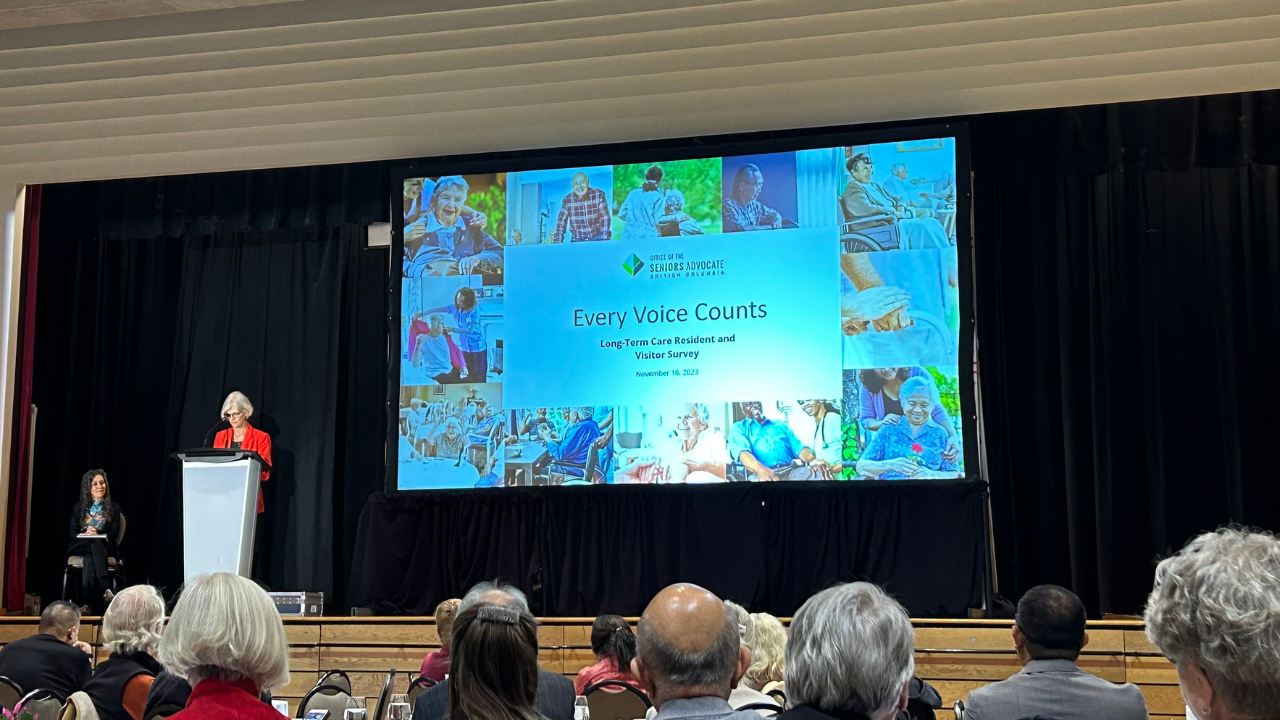This afternoon, the Office of the Seniors Advocate (OSA) released a new report on the experiences of seniors and their families with B.C.’s publicly subsidized long-term care sector. Titled Every Voice Counts: Long-Term Care Resident and Visitor Survey Results – 2023, the report compares previous 2016/17 findings to identify areas of improvement for care of long-term care residents.
While the report suggested that many residents expressed overall satisfaction with their experience in long-term care, there were some opportunities for improvement in areas such as promoting autonomy, providing meaningful activities, and engagement with staff and other residents.
Moving forward, the report provided eight recommendations:
- Increase staffing levels in all long-term care homes to the nationally recommended 4.1 hours of direct care per resident per day
- Increase flexibility of scheduling
- Increase social connections for residents by creating more meaningful activities to improve resident engagement
- Improve food and mealtime experience to meet residents’ preferences, including nutritional and culturally-specific dietary needs
- Implement compulsory professional education for all care home staff in cultural safety and emotional health and well-being of residents
- Allow all residents (or substitute decision maker, if appropriate) to name their “essential visitor”
- Work closely with the Independent Long-Term Care Councils Association of BC to raise awareness and increase the function of resident and family councils at all long-term care facilities in B.C.
- Improve community-based services, in particular home support, to ensure seniors are not required to seek long-term care unless their care needs cannot be met in the community
“At a high level, we agree with the direction of the OSA recommendations in the sense that they are consistent with our advocacy of improving quality of life for older adults,” says BC Care Providers Association (BCCPA) and EngAge BC Board President, Ron Pike.
“Our collective challenge, however, is putting these thoughts and recommendations into practice. To this end we are committed to continuing our work with the Ministry of Health to improve the availability of Health Human Resources in our province and establishing sustainable funding models that help achieve these goals.”
BCCPA and EngAge BC will look closely at and take into consideration these recommendations as it works toward advocating for a better quality of life for residents. At its 2020 Annual General Meeting, the Association passed a motion that calls for a Quebec style Home Health tax credit to make community support more affordable and to help support people age in the right place.
Earlier this year, the Association released Supporting an Active Partnership: A Service Provider’s Guide to Family & Resident Councils to share learnings and best practices for supporting long-term care operators in strengthening the development and continuation of resident and family councils. The Association will also continue to collaborate closely with the Independent Association of Family and Resident Council to support its work.
Lastly, BCCPA and EngAge BC would like to thank the BC Seniors Advocate for her dedication and hard work in ensuring that long-term care residents have their voices heard.
Read the full report here.





